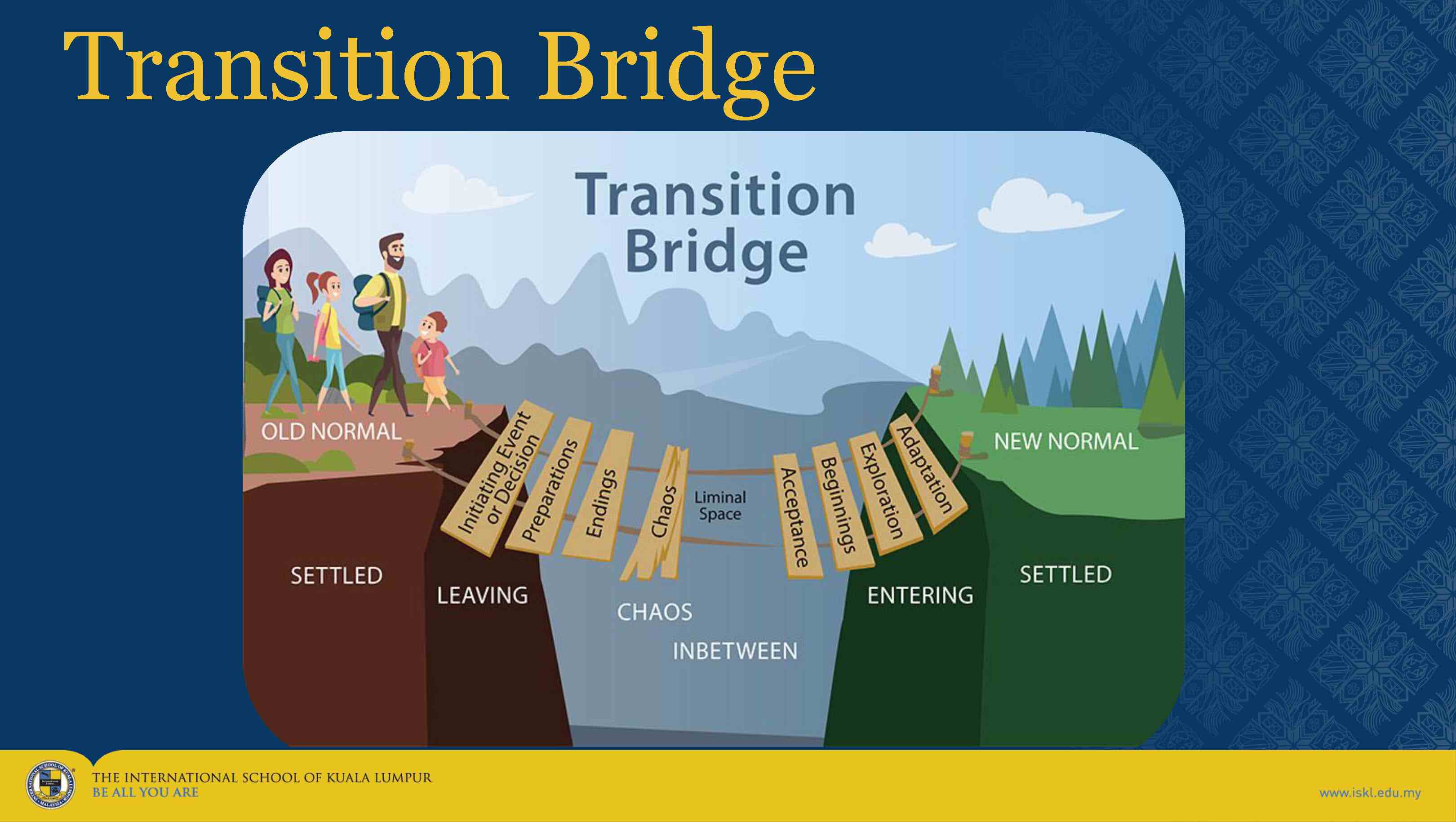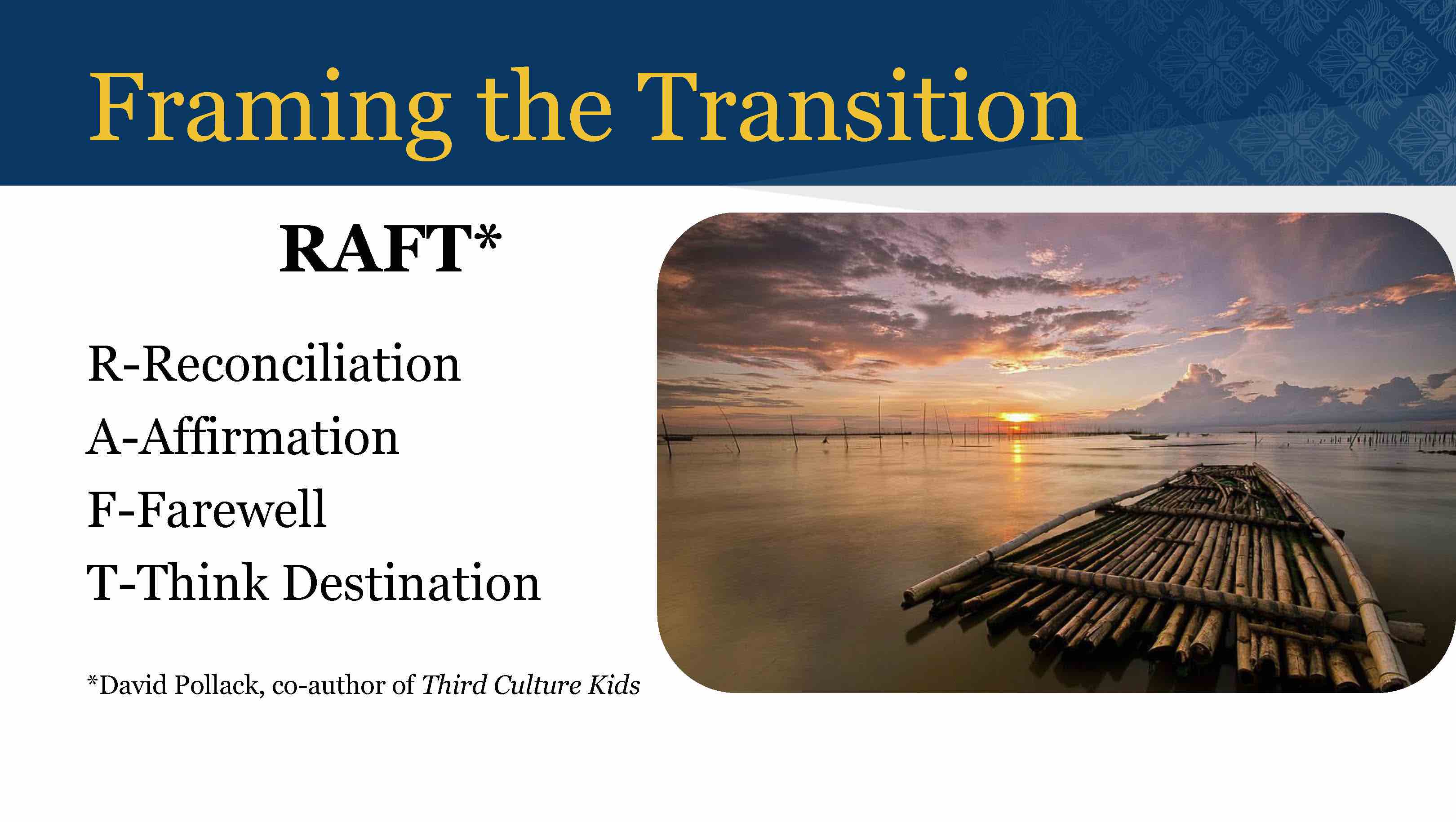Inevitably, some families from the highly mobile International School of Kuala Lumpur (ISKL) community have to relocate for work or other reasons. This can be a very emotional period when we have to uproot ourselves and leave a place that we have come to know as home.
A workshop was organized by ISKL Counselors to help parents better understand and cope with the challenges of leaving. They also shared some helpful strategies for making a smooth transition to the next place.
Culture shock could be quite disorienting and frustrating as one goes through an unfamiliar stage when things are not exactly working out as planned or, perhaps, not matching expectations. However, it can also be beneficial if we take it as a chance for growth as we learn about a new culture and acclimatize to the new place.
If you’re repatriating after being abroad, it may be more challenging than anticipated, even though, on the surface, it appears you are going home because you could be suffering from reverse culture shock. On the other hand, you would have gained a wider perspective and thus are able to compare and contrast your own culture with others. It is also crucial to provide third culture kids (TCK) the support they need as an acknowledgment of their unique identity. You can do this by joining support groups, social media sites, or reading books such as The Art of Coming Home by Craig Storti.
Rather than viewing the move as going back, Alison suggested that one could reframe the repatriation process as moving forward instead and use the skills and strategies employed abroad for the ongoing identity development process.
Change takes time and that the process could be different for every family member. Using the Transition Bridge to illustrate her point, she explained how the whole process involves getting out of a place of familiarity and one’s comfort zone (old normal), going through a phase of chaos and unpredictability, and then, as you explore and adapt, settling into the new place (new normal).

Leaving is typically never easy, and transition often comes with a big bag of mixed emotions. For children, if leaving is difficult, it means they have made strong connections and formed memories to which they have attachments, which is a good thing.
Many emotional and mental preparations fall primarily on the parent’s shoulders, and there are logistics to consider during the transition. But once you move on from the habitual phase you were in, you are ready for the exciting changes ahead. The key to making it the best transition possible is to keep communication open. For some children, it may take longer to adjust, but with support both at home and at school, they will eventually settle down.
Dealing with transition often brings about feelings similarly associated with grief. Research has shown that international school children, specifically TCKs, will experience more shifts and losses in their short time on this planet than most adults do in their lifetime, she highlighted.
Some of the feelings of grief that are also applied to moving include:
- Shock/Denial – “Not again, I’m not going.”
- Anger – “Mom, why are we always moving, I hate it.”
- Bargaining – “Why can’t we just stay until the end of the school year?”
- Depression – “I miss my old friends…”
- Acceptance – “I still miss ISKL, but my new school is okay too.”
What happens on multiple levels in the student community is a quick release, which is when children (or even parents) abruptly disconnect relationships. This is just a coping mechanism as it appears easier to leave on bad terms than to deal with the loss of someone you care about. It is important to avoid that quick release as how you close this chapter of your life in Kuala Lumpur will directly impact the next chapter.

At ISKL, we follow the motto Leave right, Start right, and one way you can do this successfully is by following the acronym RAFT:
- R: Reconciliation – mending fences or conflicts so that you do not carry baggage with feelings of regret or anger with you to the next place.
- A: Affirmation – acknowledging and thanking those who have helped you along the way
- F: Farewell – saying goodbye and acknowledging separation
- T: Think Destination – preparing and looking forward to the new place.
While it may not seem significant, Heather mentioned that it would also be good to check out things you would miss before moving to your next destination. This could be visiting places in Malaysia, eating the kind of food available here, taking last-minute photos, and buying things you can only get here.
As you move on from ISKL, students and their families are considered life-long members of the ISKL community as alumni. Do exchange contact information to stay connected with us, and you can be assured that ISKL counselors will always extend that hand of support. For news and updates on ISKL, follow us on Facebook, Instagram, or read our blog.





